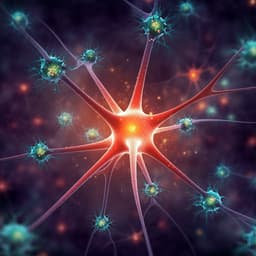
Psychology
Wistar rats choose alcohol over social interaction in a discrete-choice model
G. Augier, V. Schwabl, et al.
This study reveals intriguing insights from Wistar rats, highlighting their overwhelming preference for alcohol over social interaction. Conducted by Gaëlle Augier, Veronika Schwabl, Asmae Lguensat, Mihai Atudorei, Osamudiamen Consoler lyere, Sandra Eriksson Solander, and Eric Augier, the research suggests that alcohol's unique reward interactions may challenge existing social choice models.
Playback language: English
Related Publications
Explore these studies to deepen your understanding of the subject.







